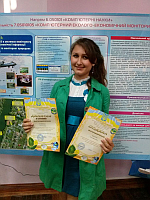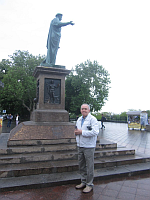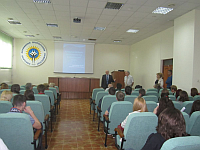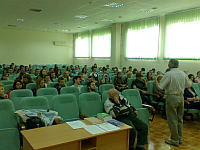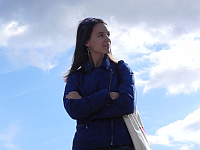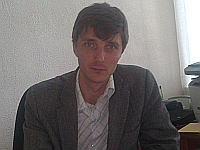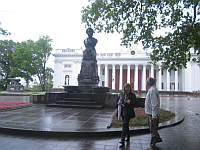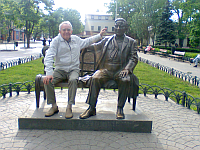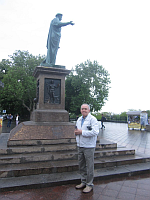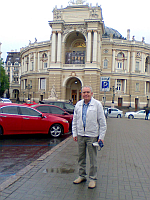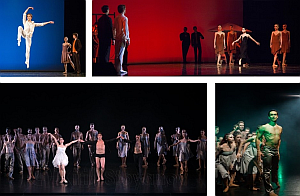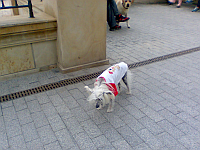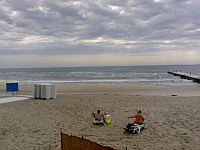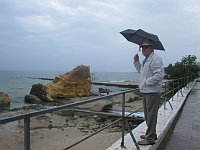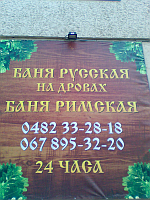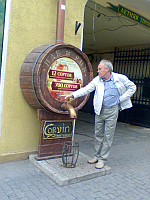| Odessa Digest |
|
At the request of the university professor L.G. Melnyk delivered a lecture, “The fundamentals of sustainable development” for teachers and students of the university. At the lecture, in particular, the possibility trialectic approach to the analysis of socio-economic systems’ processes proposed by the author were shown. This method involves consideration of three system forming origins, material and energy (driving), information (directing) and synergetic (combining).
Separately, a question about development perspectives of the country was raised. It was justified that Ukraine is doomed to success, but only if it can unite around its FUTURE. Then each region of the country will have its own history, but all together would have common origin directed into the future. In economics, it must be based on not the consume of separate resources, but use of holistic and renewable synergetic potential of a territory. In the systemic production complex economic sectors (such as crops, livestock, beekeeping, forestry, processing, recreation, etc.), using the forces of nature, must at the same time strengthen one another. Once in the history such case happened in Vozdvizhensk Labour Brotherhood, which existed for nearly half a century (from the beginning of the 1880s till 1929) to the north from Hlukhiv (now the territory of Sumy region). During the whole history of the Brotherhood there was not a single case of crop failure. L.G. Melnyk donated to the university his monograph about the Brotherhood “Ascent to Utopia, or N.N. Neplyuev’s Time Machine” (in Ukrainian). Organic agriculture, forestry and water management, “green” energy, recreation, creative economies should become “locomotives” for transition to sustainable development in modern Ukraine. Their indisputable advantages is the “sharpness” on the reproduction of the natural environment, a permanent reduction of resource intensity, focus on highly skilled professionals, development of small and medium-sized businesses. “Heavy” (i.e. material and energy intensive) sectors, which focus on the consumption of non-renewable resources (subsoil), should gradually but steadily replaced by “light ones” (which are based on the use of system functions of nature and information processing). Further – Professor L.G. Melnyk’s text. It was a surprise for me to meet on the lecture my former students: SSU graduate A.S. Goncharenko (who now works at Odessa National Polytechnic University) and multiple participant of the international conference in SSU “Economics for Ecology” A. Vardanyan (works at OSECU).
The announcement in Odessa SECU was another pleasant surprise. It turns out that used batteries in Ukraine started to be recycled. Such thing I met only in Japan twenty years ago. 26 containers for the collection of batteries in Odessa and Nikolaev schools have been already installed. The first batch of batteries collected for recycling has been sent to France. The second batch of collected batteries will be already processed at Lviv factory “Argentum”. Initiators and co-executors of the project are OSECU PhD student Y.A. Kotelnikova and T.G. Chornaya – Head of the Regional Center for Environmental Knowledge Transfer. Announcement in OSECU I am grateful to the hosting university (primarily Head of the Department of Environmental Management, Dr., V. Kovalev and Vice-Head of the same department candidate of Economic Sinces, Assoc. Prof. E.P. Pavlenko) for the excursion around the city. Thanks to her I was able to hear a couple of new-old anecdotes from L. Utyosov and learn from Duc de Rishile about the prospectives of Ukraine (it is better seen from above).
Anecdotes from Utyosov:
Tell me, doctor, will I be able to play the violin after the surgery? ***
– Oh! I am so worried about my wife!
The visit to the recently opened after restoration Odessa Opera and Ballet Theater was a memorable point in the cultural program. The world premiere of the ballet “Yell” on a novel by Zinoviev, “Go to Golgotha” left nobody indifferent! Choreograph and its leading actor is the soloist of the Bolshoi Theatre Russian Federation Honoured Artist Andrei Mercury. Perhaps, a quote from Zinoviev’s novel better conveys the main idea of the ballet: “It is better to die among men than to be alive and healthy at the solitude”. But there is even worse condition: to be among many people for whom you do not exist. This state can be compared only with the state of the all-powerful God in the society of atheists …” Scenes from the ballet “Yell” Odessa is ready for summer season. Though the dogs on the quay have not removed demi-season clothing, brave Odessa citizens expose themselves to wind and timid sun rays.
Odessa has a unique opportunity to experiment … namely “wait in vain” on a rainy day. To wait the whether from the sea (English version – to wait in vain) As usual Odessa is paradoxical. Roman bath easily is combined with Russian one. (it looks like the same location, …). And seven hundreds of wine varieties can be tried from the same barrel.
Odessa is painfully living through the tragedy of May 2. The city seems to feel silent as if in pain. Symbols of political confrontation disappeared from the streets. Public tragedy can break people, but it can bring them together. Once Switzerland experienced a civil war. The victims were … 15 people. This not so impressive number for some people caused, nevertheless, such a shock in the country that a stone made of black granite with the inscription “Never again!..” was erected. I wish Odessa citizens would come to the exact conclusion. Even in the most difficult periods of its life Odessa has always known how to smile. Sometimes it was laughter through tears. But it turned out it was a lifeline for survival on the turbulent waves of life. Today, when you hear Odessa citizens’ dialogues it is difficult to understand, whether these are echo of past anecdotes or you witness improvisation, which will become a joke in the future. At least in present circumstances the relevance of many Odessа citizens’ thoughts one does not doubt:
– Tell me, please, will I reach the opera house, if I go along this street? ***
– Uncle, do you know, I am mobilized into the army … ***
– Honey, if the recruiting office will ask for me, just tell them “I am away”. ***
– Where do you want to serve? Actually, multidimensionality (at least, some cubic capacity, a unique 3D) of Odessa anecdotes is the consequence of Odessa citizens’ inner freedom. I want to believe that this inner freedom provides a reliable immunity that can protect Odessa citizens’ souls from external aggression. Once the main person of this news was calling to Odessa. After the question: “Is it Odessa?” – He heard a philosophic response: “It STILL is!” I wish that this response remained unchanged … At least, in our lifetime … |
